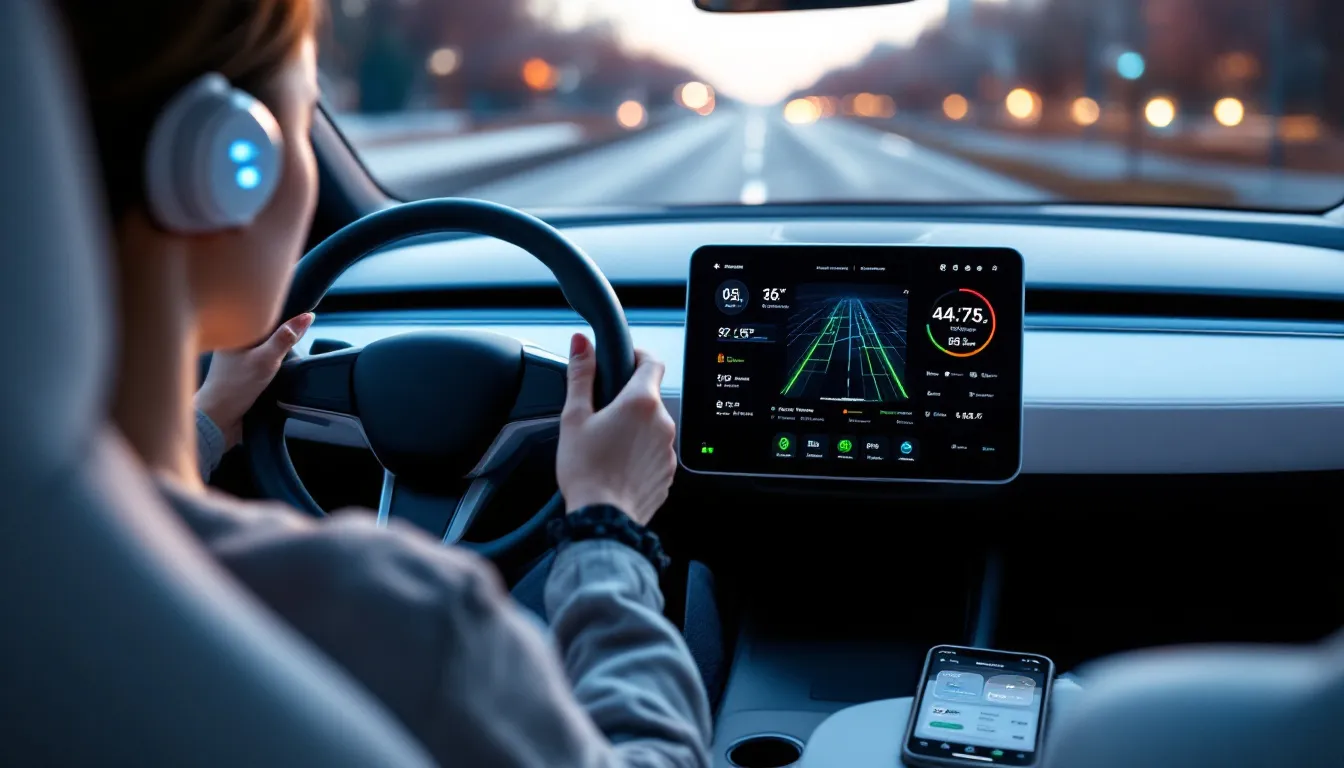Ultimate Guide to Car Insurance with Telematics: Save on Your Premiums Today

Smarter Driving, Smarter Insurance
Car insurance is finally catching up with the 21st century. With the rise of telematics technology, car insurance companies can now use real-world driving data to tailor your car insurance premium to how you actually drive. That means if you’re a safe, low-mileage driver who avoids late-night drives and distractions like cell phone use, you could see major savings.
At BrickHouse Security, we’ve always believed in using technology to empower people. That’s why we’ve tested and developed GPS trackers that don’t just protect your vehicle—they give you greater control over your insurance rates too.
Let’s explore how insurance with telematics works, how to maximize your potential savings, and how to make the most of it using BrickHouse GPS devices.
What is Telematics in Car Insurance?
Telematics in car insurance refers to a usage based insurance model that uses GPS, motion sensors, and connected devices to collect data on various factors related to your driving habits. This includes:
- Speed
- Hard braking
- Acceleration
- Phone use
- Time of day
- Number of miles driven
Unlike traditional insurance premiums based on age or zip code, car insurance telematics looks at your actual behavior behind the wheel. The result? Fairer pricing—and for many drivers, significantly lower auto insurance premiums.
How Telematics Programs Work
Insurance companies typically offer usage based programs through either a smartphone app or a plug-in telematics device (like one connected to your car’s OBD-II port). These tools track your driving behaviors, which are constantly tracked and send that data back to the insurer.
Common Data Points Collected:
|
Driving Behavior |
Why It Matters |
|---|---|
|
Speeding |
Increases crash risk |
|
Braking hard |
Indicates aggressive driving |
|
Acceleration |
Jerky starts = unsafe driving |
|
Late night driving |
Driving after midnight is riskier |
|
Phone use |
Distracted driving is dangerous |
|
Miles driven |
More miles = higher exposure |
Once data collected is analyzed, your risk profile is updated and your insurance premiums are adjusted accordingly. Many programs offer initial discounts just for enrolling, with additional savings if your driving data shows good habits.
Benefits of Insurance Telematics
Whether you’re a teen driver or a business owner with a small fleet, the advantages of telematics are real, promoting safer driving habits and offering financial incentives.
Save Money
- Safe drivers can potentially save 5% to 40%.
- Low mileage drivers benefit from per-mile rates.
- Many usage based insurance programs offer sign-up discounts.
Improve Driving Habits
- Get personalized driving feedback to identify areas for improvement.
- Spot risky driving behaviors and fix them fast.
- Reinforce defensive driving strategies over time.
Empowerment Through Data
- Know exactly what’s influencing your insurance premium.
- Share only the data you’re comfortable with.
- Use your own GPS tracker (like our Spark Nano 7) to stay one step ahead.
Your Telematics Toolkit
While insurers generally give you access to basic telematics data, using a BrickHouse GPS tracker gives you the edge. You can monitor driving behavior independently, compare results, and even protect your privacy by reviewing your driving performance before opting into a telematics program that could potentially offer a telematics discount.
Recommended Devices for Telematics
At BrickHouse Security, we offer a range of GPS trackers that help you monitor driving behaviors—before you share data with an insurer. These tools give you the upper hand in shaping your risk profile, improving safety, and potentially unlocking discounts with usage based insurance programs.
Spark Nano 7 GPS Tracker
- Tracks location, speed, and miles driven
- Portable and battery-powered—ideal for personal or fleet use
- Sends real-time alerts and updates via the mobile app
Best for: Teen drivers, gig economy vehicles, or anyone seeking greater control over telematics data
TrackPort Pro
- Plugs directly into your vehicle’s OBD-II port—no batteries needed
- Provides instant access to driving behaviors and vehicle diagnostics
- Ideal for usage based and pay-per-mile insurance tracking
- Works with both our smartphone app and desktop dashboard
Best for: Fleet managers, frequent commuters, or anyone joining a telematics program
VizTrack Dash Cams with GPS
- Combines GPS tracking with road-facing dash cam video (Road-View) or with both road-facing and cabin-facing dash cam video (Dual View)
- Captures real-time footage and tracks driver activity simultaneously
- Offers visual proof in case of accidents or false claims
Best for: Rideshare drivers, businesses, and drivers concerned with data accuracy
Each of these devices gives you access to personalized driving feedback, helping you identify risky driving behaviors and correct them—before your insurance company weighs in.
Top Insurance Telematics Programs in the U.S.
Many leading insurers now offer telematics options through a usage based program. Here’s how they stack up:
Allstate’s DriveWise
- Tracks: Braking, speed, and late-night driving
- Max discount: Up to 40%
- Pros: Simple setup, automatic driving feedback
Geico’s DriveEasy
- Available in 37 states + D.C.
- Tracks: Phone use, cornering, braking
- Includes: Crash detection, defensive driving course
- Pros: Smart feedback, easy-to-use telematics app
Nationwide SmartRide & SmartMiles
- SmartRide: Tracks safe behaviors for discounts
- SmartMiles: Pay per mile rate for infrequent drivers
- Ideal for: Low mileage drivers, remote workers
Progressive’s Snapshot
- Tracks: Speed, time of day, braking
- Provides personalized insurance quotes
- Watch out: Some users report minimal discounts vs. effort
State Farm Drive Safe & Save
- Discount: Up to 30%
- Requires: Bluetooth beacon + mobile app
- Extras: Accident Assistance in emergencies
Is Telematics Right for You?
Telematics makes the most sense for:
- Safe drivers who avoid speeding and aggressive driving
- Low mileage drivers (under 10,000 miles/year)
- People with consistent routines who drive during daylight hours
- Parents of teen drivers
- Rideshare operators and delivery drivers
But telematics may not be ideal if you:
- Regularly commute long distances
- Drive late at night or in high-risk areas
- Have a tendency toward aggressive driving
Tip: Test yourself with a BrickHouse GPS tracker to understand your habits before enrolling in a telematics program.
Privacy and Data Security Concerns
Let’s be honest—privacy concerns are real. Nobody wants to feel like they’re under surveillance 24/7.
How Insurers Handle Privacy:
- Data collected is typically limited to relevant driving events
- Insurers are subject to data privacy laws like GDPR and CCPA
- Users must give informed consent
- Access is restricted to authorized insurance personnel
How BrickHouse Helps:
- You control the data with our GPS devices
- Review your behavior without involving third parties
- Perfect for cautious drivers wanting data autonomy
Real User Experiences
Like any tech, usage based insurance programs come with pros and cons for customers.
Positive:
“I used DriveWise and saved over $300 in the first year. It actually made me a better driver too.” – Angela, NY
Cautionary:
“Progressive’s Snapshot felt a bit judgmental. I passed one yellow light and got dinged for it. But I still saved some money.” – Jake, IL
Knowing what your insurance company tracks can help set expectations and guide behavior.
Tips to Maximize Your Telematics Savings
- Drive safely and smoothly – No sudden stops or fast starts. Monitoring your driving behaviors through telematics can provide insights into safety, helping you earn discounts on your car insurance premiums based on your safe driving habits.
- Avoid phone use – It’s one of the most penalized behaviors.
- Stay off the road late at night – High-risk times hurt your score.
- Use a BrickHouse tracker first – Understand your risk profile privately.
- Keep mileage low – Combine errands, carpool, or use public transit.
- Review your feedback regularly – Adjust behaviors as needed.
- Take a defensive driving course – Some insurers offer extra discounts for this.
Common Myths About Telematics
Myth 1: It invades your privacy.
Fact: You choose what data to share and when.
Myth 2: Telematics is only for new drivers.
Fact: Many experienced drivers save the most.
Myth 3: The devices are hard to use.
Fact: Most are plug-and-play or app-based.
Myth 4: Switching programs is difficult.
Fact: Most companies make transitions seamless.
Future of Telematics Insurance
We’re just getting started. In the next few years, expect:
- AI-enhanced analytics that predict crash risks
- More precise discounts based on nuanced data points
- Greater integration with smartphone apps
- Broader ubi programs with customizable features
As telematics technology evolves, the insurance industry will move away from one-size-fits-all pricing to models that reflect who you really are as a driver.
Final Thoughts: Drive Smart, Save Big
Car insurance with telematics is a win-win. It rewards you for good behavior, gives you valuable feedback, and offers the opportunity to save money—sometimes hundreds of dollars a year.
By pairing usage based insurance with a BrickHouse GPS tracker, you not only take control of your driving data but also protect your vehicle, improve your habits, and set yourself up for safer driving and long-term savings.
Frequently Asked Questions
What is telematics in auto insurance?
It’s a usage based approach that monitors driving habits like speed, mileage, and braking to offer personalized insurance premiums.
Are there disadvantages to using telematics?
Some users cite privacy concerns or minor savings after effort. However, using a third-party tracker first—like one from BrickHouse—can help you decide.
How is the data collected?
Through a plug-in device or smartphone app, which tracks behavior and uploads data to the insurer.
How much can I save with telematics?
Average savings are around $120 per year, but safe drivers can save up to $245 or more.
What about data privacy?
Reputable insurers follow data protection regulations, but using a BrickHouse tracker gives you the option to analyze first—share later.
Posted by Kellie Kendall on May 15th 2025




